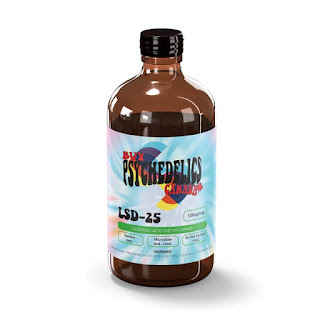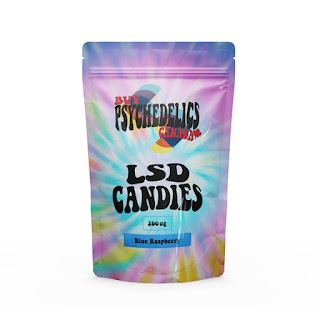How Millennials Are Disrupting Buy Psychedelics Online Canada
Psychedelics: A Brief History
Psychedelics have been used for centuries by various cultures moonrock molly for religious and spiritual purposes. In the West, they became popular in the 1960s as a way to experience altered states of consciousness and expand one's mind.
Psychedelics are substances that alter the perception, mood, and thought patterns of those who use them. Common psychedelics include LSD, psilocybin (magic mushrooms), and DMT.
Psychedelics can be used for a variety of purposes, including recreation, self-exploration, and therapeutic treatment. Some people use them to feel more connected to nature or the universe, while others use them to experience intense visuals and hallucinations.
Psychedelics are not for everyone and can be dangerous if not used properly. It is important to do your research before taking any psychedelics and to be aware of the potential risks.
2. Psychedelics and Mental Health
Psychedelics have been shown to be effective in treating a wide range of mental health conditions, including depression, anxiety, PTSD, and addiction. In recent years, there has been a resurgence of interest in psychedelics as a potential treatment for mental health conditions, as well as a growing body of scientific evidence to support their efficacy.
Depression is one of the most common mental health conditions, and it is also one of the most difficult to treat. Psychedelics have shown promise in treating depression, with a recent study finding that a single dose of psilocybin (the active ingredient in magic mushrooms) was effective in reducing symptoms of depression in patients who had failed to respond to other treatments.
Anxiety is another common mental health condition, and like depression, it is often difficult to treat. Psychedelics have also shown promise in treating anxiety, with a recent study finding that a single dose of LSD was effective in reducing anxiety in patients with terminal cancer.
PTSD is a debilitating condition that can be extremely difficult to treat. Psychedelics have shown promise in treating PTSD, with a recent study finding that a single dose of MDMA was effective in reducing symptoms of PTSD in patients who had failed to respond to other treatments.
Addiction is a serious problem that affects millions of people around the world. Psychedelics have shown promise in treating addiction, with a recent study finding that a single dose of ibogaine (an African psychedelic plant) was effective in reducing cravings and withdrawal symptoms in patients with heroin addiction.
Psychedelics are a promising new treatment for mental health conditions, and there is a growing body of scientific evidence to support their efficacy. If you are struggling with a mental health condition, talk to your doctor about whether psychedelics could be right for you.
3. The Risks of Psychedelics
Psychedelics are substances that produce changes in perception, mood, and cognitive function. They can be natural or synthetic, and they are sometimes used for religious or spiritual purposes. Some psychedelics are illegal in the United States, but there is a growing movement to legalize them for therapeutic use.
Psychedelics are thought to work by disrupting the communication between different areas of the brain. This can lead to changes in perception, mood, and cognition.Psychedelics are also thought to increase the release of serotonin, a neurotransmitter that plays a role in mood and perception.
There are a number of risks associated with psychedelics, including:
1. Psychotic symptoms: Psychedelics can cause psychotic symptoms, such as delusions and hallucinations. These symptoms can be very distressing and may last for a long time.
2. Anxiety and depression: Psychedelics can cause anxiety and depression. This may be due to the changes in brain chemistry that they produce.
3. Flashbacks: Flashbacks are a type of hallucination that can occur after taking psychedelics. Flashbacks can be triggered by stress, sleep deprivation, or use of other drugs.
4. Tolerance: Tolerance to psychedelics can develop quickly, which means that higher doses are needed to achieve the same effect.
5. Dependence: Some people who use psychedelics regularly can become dependent on them. This means that they feel they need to take the drug to function normally.
Psychedelics are not right for everyone, and they can be dangerous if not used responsibly. If you are considering using psychedelics, it is important to be aware of the risks and to make sure you are using them in a safe and controlled environment.
4. Psychedelics and the Law
Psychedelics are classified as Schedule I drugs in the United States, meaning they have a high potential for abuse and no accepted medical use. Despite this, a growing body of research suggests that psychedelics could be used to treat a variety of mental health conditions, including depression, anxiety, and addiction.
In recent years, there has been a renewed interest in the therapeutic potential of psychedelics, and a number of clinical trials are currently underway investigating their efficacy. However, the legal status of these drugs remains a barrier to research and clinical use.
In this blog post, we will take a look at the legal status of four psychedelics: LSD, psilocybin, MDMA, and ketamine. We will also discuss the ongoing efforts to change the law and allow for more research into the therapeutic potential of these substances.
LSD
LSD (lysergic acid diethylamide) is a potent psychedelic drug that was first synthesized in 1938. It is typically taken orally, and effects can last for up to 12 hours. LSD is known for its ability to produce powerful hallucinations and alter perception, mood, and thought.
LSD is a Schedule I drug in the United States, and it is illegal to manufacture, possess, or sell it. However, LSD is not currently listed as a controlled substance in Canada.
Psilocybin
Psilocybin is a naturally occurring psychedelic compound found in certain types of mushrooms. It is typically consumed orally, and effects can last for up to 6 hours. Psilocybin is known for its ability to produce powerful hallucinations and alter perception, mood, and thought.
Psilocybin is a Schedule I drug in the United States, and it is illegal to manufacture, possess, or sell it. However, psilocybin is not currently listed as a controlled substance in Canada.
MDMA
MDMA (3,4-methylenedioxymethamphetamine) is a synthetic Psychedelics drug that was first synthesized in 1912. It is typically taken orally, and effects can last for up to 6 hours. MDMA is known for its ability to produce feelings of euphoria, empathy.





Comments
Post a Comment